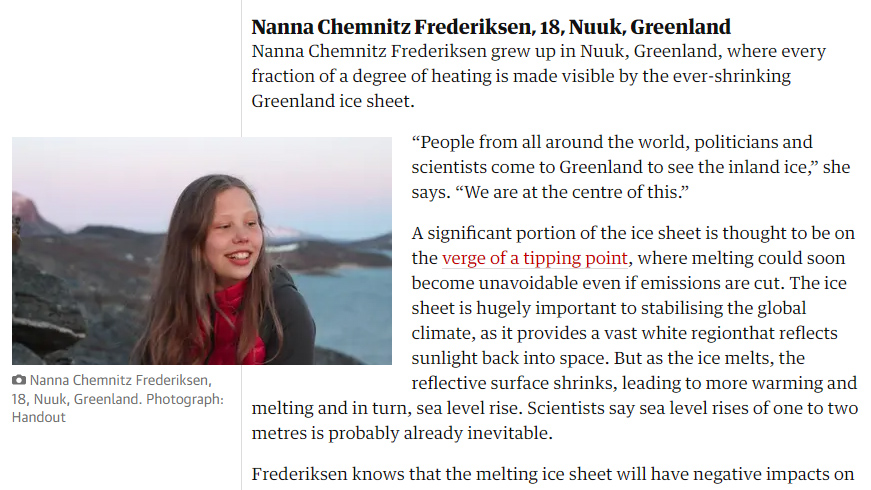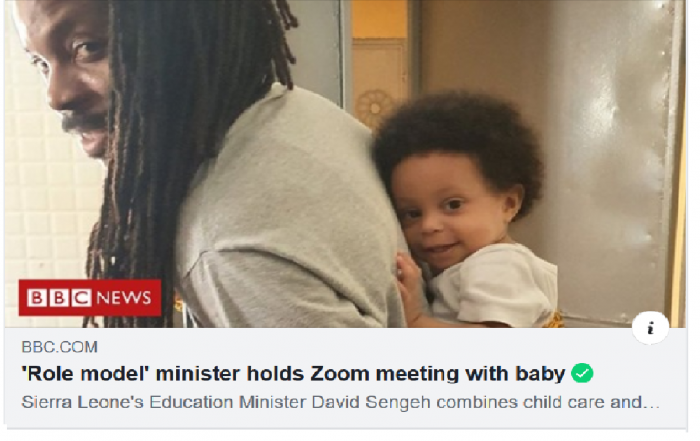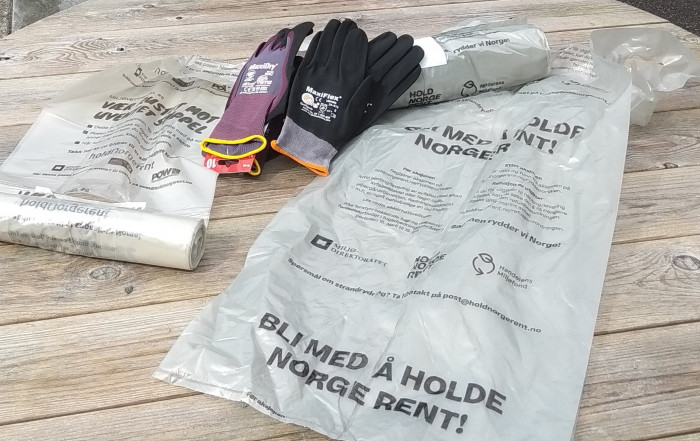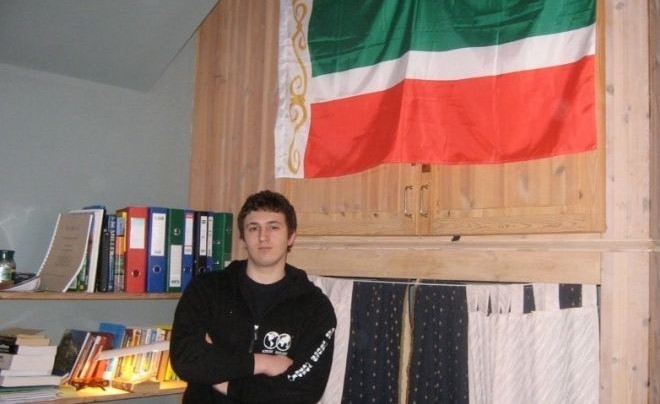“People from all around the world, politicians and scientists come to Greenland to see the inland ice,” she says. “We are at the centre of this.”
A significant portion of the ice sheet is thought to be on the verge of a tipping point, where melting could soon become unavoidable even if emissions are cut. The ice sheet is hugely important to stabilizing the global climate, as it provides a vast white region that reflects sunlight back into space. But as the ice melts, the reflective surface shrinks, leading to more warming and melting and in turn, sea level rise. Scientists say sea level rises of one to two metres is probably already inevitable.
Frederiksen knows that the melting ice sheet will have negative impacts on communities across Greenland, especially in northern settlements such as Qaanaaq where permafrost melting is destabilizing homes and roads and impacting how fishers and hunters operate.
But her real concern lies on the impact it will have globally. “I am not so scared of what the effects of the melting of ice in Greenland will be,” Frederiksen says, “It scares me what effect it can have for the rest of the world.”
Latest News
Education Minister, RCN Graduate and Role Model Father
David Sengeh (RCN '04-'06) is today today Sierra Leone's Education Minister and we are proud to see him living the UWC mission in his personal and professional life. BBC News describes him as “a [...]
RCN: Official distribution point for coastal cleanup equipment
We are proud to announce that RCN is now an official distribution point for coastal cleanup equipment: Local families and groups can get small and big bags and working gloves in different sizes [...]
In Memory of Amirkhan Batalov (RCN 2005-2007)
It is with shock and great sadness we got to learn from Amirkhan’s friends of his recent passing. Amirkhan graduated from UWC Red Cross Nordic in May 2007, and studied at Westminster College, [...]




